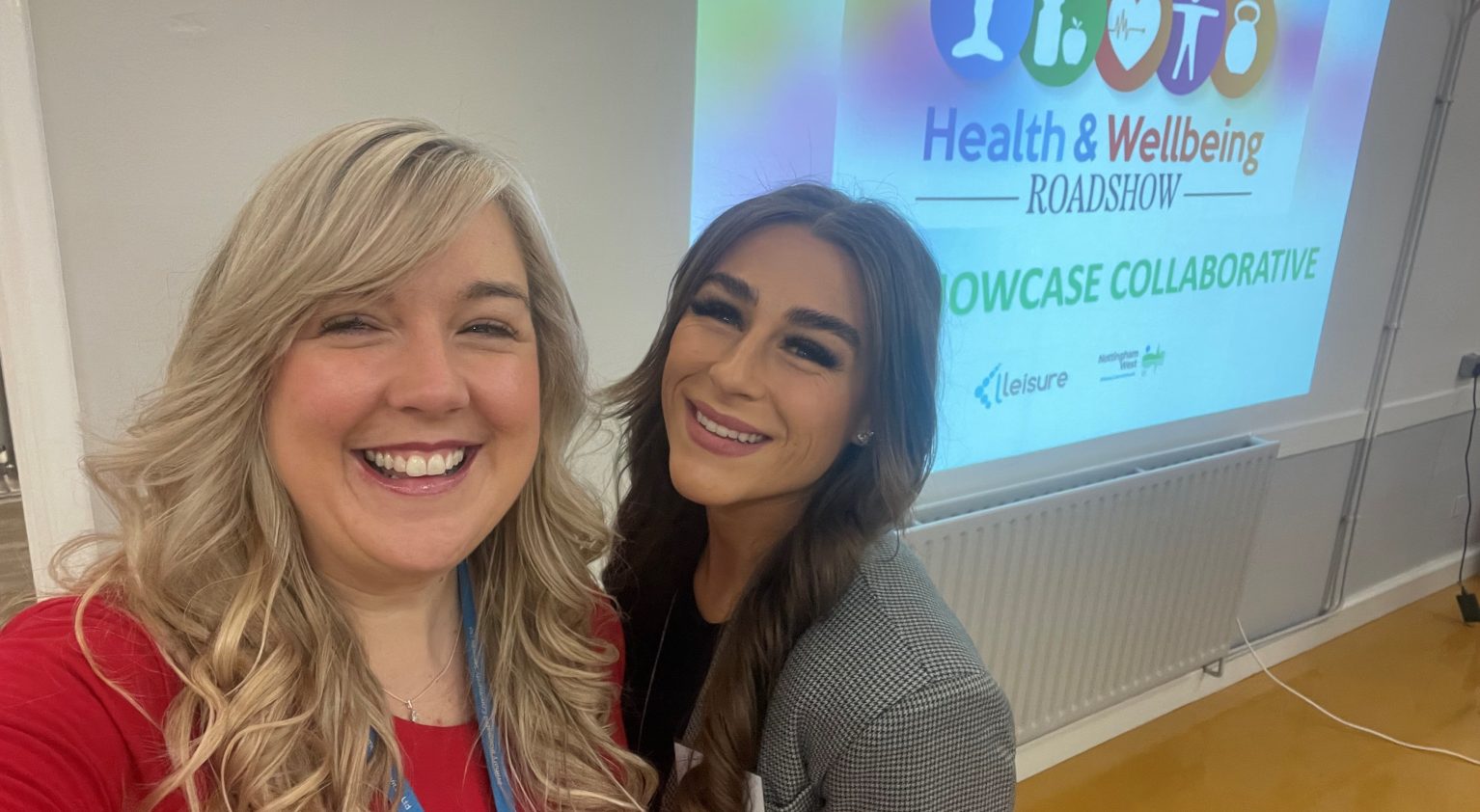
‘Inspiring’ event on the health and wellbeing of people with a learning disability
Nearly 50 people attended an event focused on the health and wellbeing of people with a learning disability, which was described as ‘inspiring’, ‘’positive’ and ‘informative’.
The sharing event, held in Trowell, was hosted by Clare Watson, Health Inequalities Lead at Nottingham West Primary Care Network (PCN) and Chloe Corden, Active Lifestyles Manager at Liberty Leisure Limited (LLeisure). The aim was to share the learning from a year of prolonged listening at a series of health and wellbeing roadshows, to share actions already taken based on what they heard and to agree on ways to build on this work collectively.
The roadshows were funded by a grant of £2,000 from Health Innovation East Midlands to Nottingham West PCN to engage with people living locally who have learning disabilities – to see how local services could better support them to live more healthily.
The PCN, in partnership with LLeisure, has reached hundreds of people by holding six roadshows with patients with learning disabilities, their parents and carers alongside local partners from the health, care, leisure, and voluntary sector.
Sharing the learning
Clare and Chloe opened the event by explaining that there are unfair and avoidable differences in health outcomes and life chances for people with a learning disability and that their access to services, experience and opportunities can all be improved.
Clare said: “We think big but we’re starting small. Each of us can make a difference. Through the roadshows, we wanted to improve outcomes and experience locally but we knew that we weren’t the right people to come up with solutions or even identify the problems. We needed to hear the voice of patients from the start.”
The roadshows were a great partnership success story. There were six events with 35 partners engaged. The roadshows were designed to be a fun, safe space to share voices and opinions.
General feedback was that people with learning disabilities want to be known, they want to be spoken to directly and involved in decision making that directly affects them, and that language is important – for example, one attendee said that people were ‘talking upside down language’ – where a negative result in health isn’t usually a bad thing but a positive result may be.
Chloe added that attendees said they want access to everyday activities, and that feeling safe is necessary for a positive experience. “The aim is to have adjustments put in place without needing to be asked and remembering that when we get the small things right, we really do make a difference.”
The roadshows also encouraged people to try out social and physical activities such as Nordic walking, tandem riding and Boccia – and sessions are being established locally to encourage people to get involved and benefit their physical and mental health.
Looking to the future
The attendees did some group work on the topics of health, education and training and physical activity, discussing the issues, barriers, solutions and who was best placed to lead on implementing specific changes. The feedback included:
Health
- Carers often worry about what will happen with their children when they are no longer here. Ideas included community and living networks where people can live independently surrounded by people who know what their needs are.
- Continue work on having a learning disability champion in every surgery.
- Offer additional services such as a sensory clinic for giving vaccinations or diabetes checks in places where people feel comfortable, for example at a day service, and have a named person for patients with a learning disability in the GP surgery.
Education and training
- Ensuring tier two Oliver McGowan training is fit for purpose and rolled out as widely as possible – not just in areas mandated, for example within Leisure, to reception staff and ‘gate keepers’ of community services.
- Have better access to adult learning
- CPR training
- Training in active listening
- Support employment by offering an experience of what it would be like to have a job and telling potential employers of costs covered by the Department of Work and Pensions.
Physical activity
- Enablement is key
- Leisure services are open to volunteering activities
- Consider offering people who enjoy physical activity the chance to be a buddy for someone with a learning disability
- Boccia can be played anywhere and training courses are available
- How can we encourage and embed physical activity in services, through the whole system.
- Mapping what is available, advocacy from GP practices by inviting patients to groups and opportunities.
PCN Clinical Director Ali Rounce thanked Clare and Chloe, saying “the energy, drive and passion you have are so evident, you give us hope and inspire us to make a difference. Thank you to everyone who came today for what they brought, building a greater understanding.”
Clare and Chloe also thanked the attendees and the partners in the roadshows from across Nottinghamshire, recognising that they would not have been a success without everyone’s support.